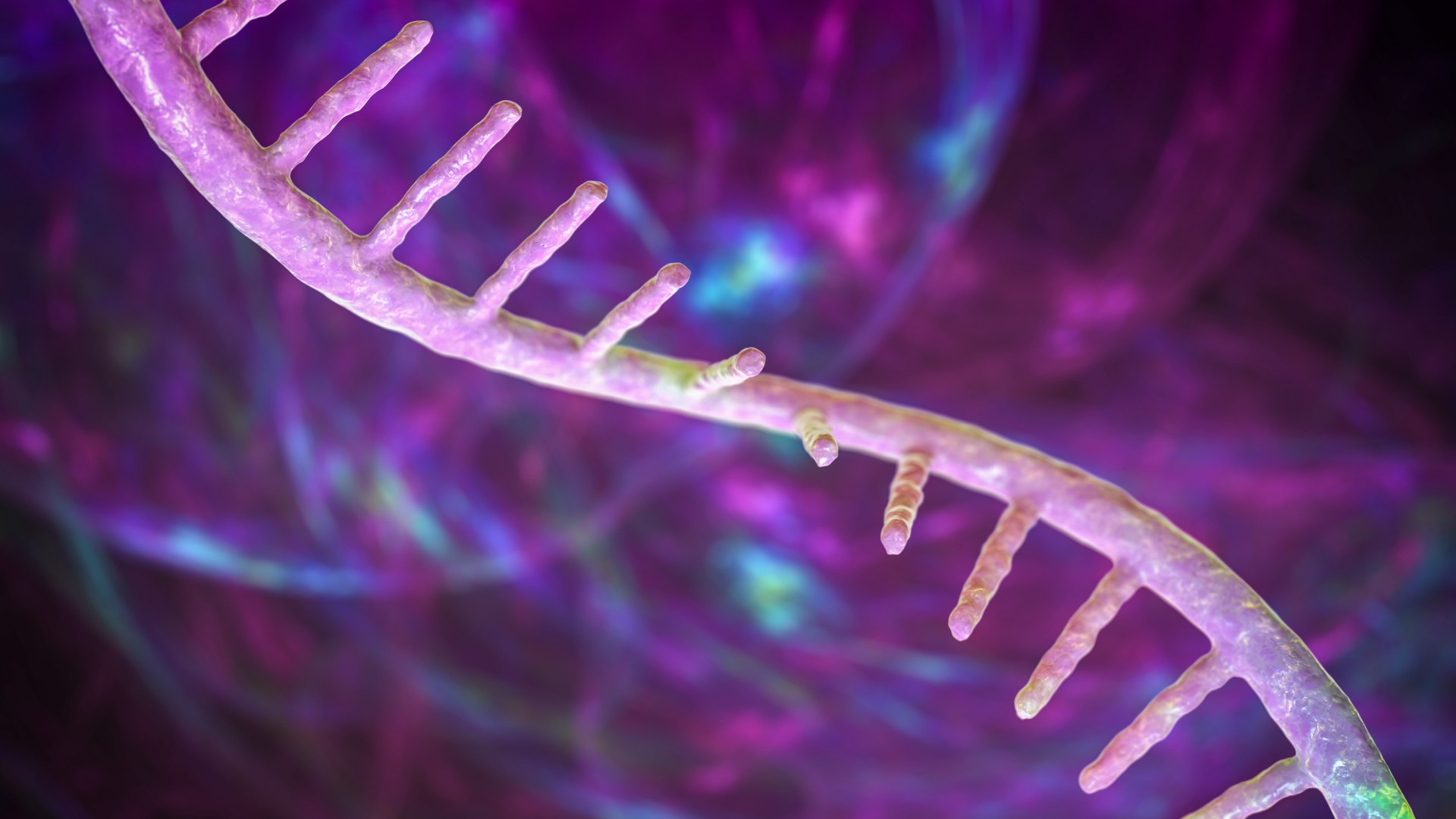New genetic cause of intellectual disability potentially uncovered in 'junk DNA'
Mutations in "junk DNA" could be responsible for rare genetic cases of intellectual disability, new research hints.

Get the world’s most fascinating discoveries delivered straight to your inbox.
You are now subscribed
Your newsletter sign-up was successful
Want to add more newsletters?

Delivered Daily
Daily Newsletter
Sign up for the latest discoveries, groundbreaking research and fascinating breakthroughs that impact you and the wider world direct to your inbox.

Once a week
Life's Little Mysteries
Feed your curiosity with an exclusive mystery every week, solved with science and delivered direct to your inbox before it's seen anywhere else.

Once a week
How It Works
Sign up to our free science & technology newsletter for your weekly fix of fascinating articles, quick quizzes, amazing images, and more

Delivered daily
Space.com Newsletter
Breaking space news, the latest updates on rocket launches, skywatching events and more!

Once a month
Watch This Space
Sign up to our monthly entertainment newsletter to keep up with all our coverage of the latest sci-fi and space movies, tv shows, games and books.

Once a week
Night Sky This Week
Discover this week's must-see night sky events, moon phases, and stunning astrophotos. Sign up for our skywatching newsletter and explore the universe with us!
Join the club
Get full access to premium articles, exclusive features and a growing list of member rewards.
Scientists have uncovered a rare genetic cause of intellectual disability in a historically overlooked part of the human genome: so-called junk DNA.
This knowledge could someday help to diagnose some patients with these disorders, the researchers say.
An intellectual disability is a neurodevelopmental disorder that appears during childhood and is characterized by intellectual difficulties that impact people's learning, practical skills and ability to live independently. Such conditions affect approximately 6.5 million Americans.
Factors such as complications during birth can trigger intellectual disabilities. However, in most cases, the disorders have an underlying genetic cause. So far, around 1,500 genes have been linked with various intellectual disabilities — but clinicians are still not always able to identify the specific cause of every patient's condition.
Related: Rates of autism diagnosis in children are at an all time high, CDC report suggests
One possible explanation for this gap in knowledge is that previous approaches for reading DNA have only focused on a tiny portion of it. Specifically, they've looked at the roughly 2% of the genome that codes for proteins, known as coding DNA. About 98% of the genome contains DNA that doesn't code for proteins. This DNA was once considered "junk DNA," but scientists are now discovering that it actually performs critical biological functions.
In a new study, published Friday (May 31) in the journal Nature Medicine, scientists used whole-genome sequencing technology to identify a rare genetic mutation within non-coding DNA that seems to contribute to intellectual disability.
Get the world’s most fascinating discoveries delivered straight to your inbox.
The team compared the whole genomes of nearly 5,530 people who have a diagnosed intellectual disability to those of about 46,400 people without the conditions. These data were gathered from the U.K.-based 100,000 Genomes Project.
The researchers discovered that 47 of the people with intellectual disabilities — about 0.85% — carried mutations in a gene called RNU4-2. They then validated this finding in three additional large, independent genetic databases, bringing the total number of cases to 73.
RNU4-2 doesn't code for proteins but rather for an RNA molecule, a cousin of DNA; RNA's code can either be translated into proteins or stand on its own as a functional molecule. The RNA made by RNU4-2 makes up part of a molecular complex called the spliceosome. The spliceosome helps to refine RNA molecules after their codes are copied down from DNA by "splicing" out certain snippets of the code.
Related: 'Look at all this we don't understand': Study unravels whole new layer of Alzheimer's disease

To further determine the prevalence of this new disorder, the team then launched a separate analysis where they looked at the genomes of another 5,000 people in the U.K. who'd been diagnosed with "neurodevelopmental abnormality." This is a term that refers to any deviation from "normal" in the neurodevelopment of a child.
The team's analysis revealed that, out of those 5,000 people, 21 carried mutations in RNU4-2. That made the mutations the second most common type seen in the overall group, following mutations on the X chromosome known to cause a disorder called Rett syndrome. If changes in RNU4-2 can be confirmed as a cause of intellectual disability, this finding hints that the mutations may contribute significantly to a variety of conditions.
The new study joins a second that also linked RNU4-2 to intellectual disabilities. The research has opened up "an exciting new avenue in ID [intellectual disability] research," Catherine Abbott, a professor of molecular genetics at the University of Edinburgh in the U.K. who was not involved in either study, told Live Science in an email.
"These findings reinforce the idea that ID can often result from mutations that have a cumulative downstream effect on the expression of hundreds of other genes," Abbott said. RNA molecules that don't make proteins often help control the activity of genes, turning them on or off. The findings also stress the importance of sequencing the whole genome rather than just coding DNA, she said.
The scientists behind the new study say the findings could be used to diagnose certain types of intellectual disability.
The team now plans to investigate the precise mechanism by which RNU4-2 causes intellectual disabilities — for now, they've only uncovered a strong correlation.
Ever wonder why some people build muscle more easily than others or why freckles come out in the sun? Send us your questions about how the human body works to community@livescience.com with the subject line "Health Desk Q," and you may see your question answered on the website!

Emily is a health news writer based in London, United Kingdom. She holds a bachelor's degree in biology from Durham University and a master's degree in clinical and therapeutic neuroscience from Oxford University. She has worked in science communication, medical writing and as a local news reporter while undertaking NCTJ journalism training with News Associates. In 2018, she was named one of MHP Communications' 30 journalists to watch under 30.
 Live Science Plus
Live Science Plus





